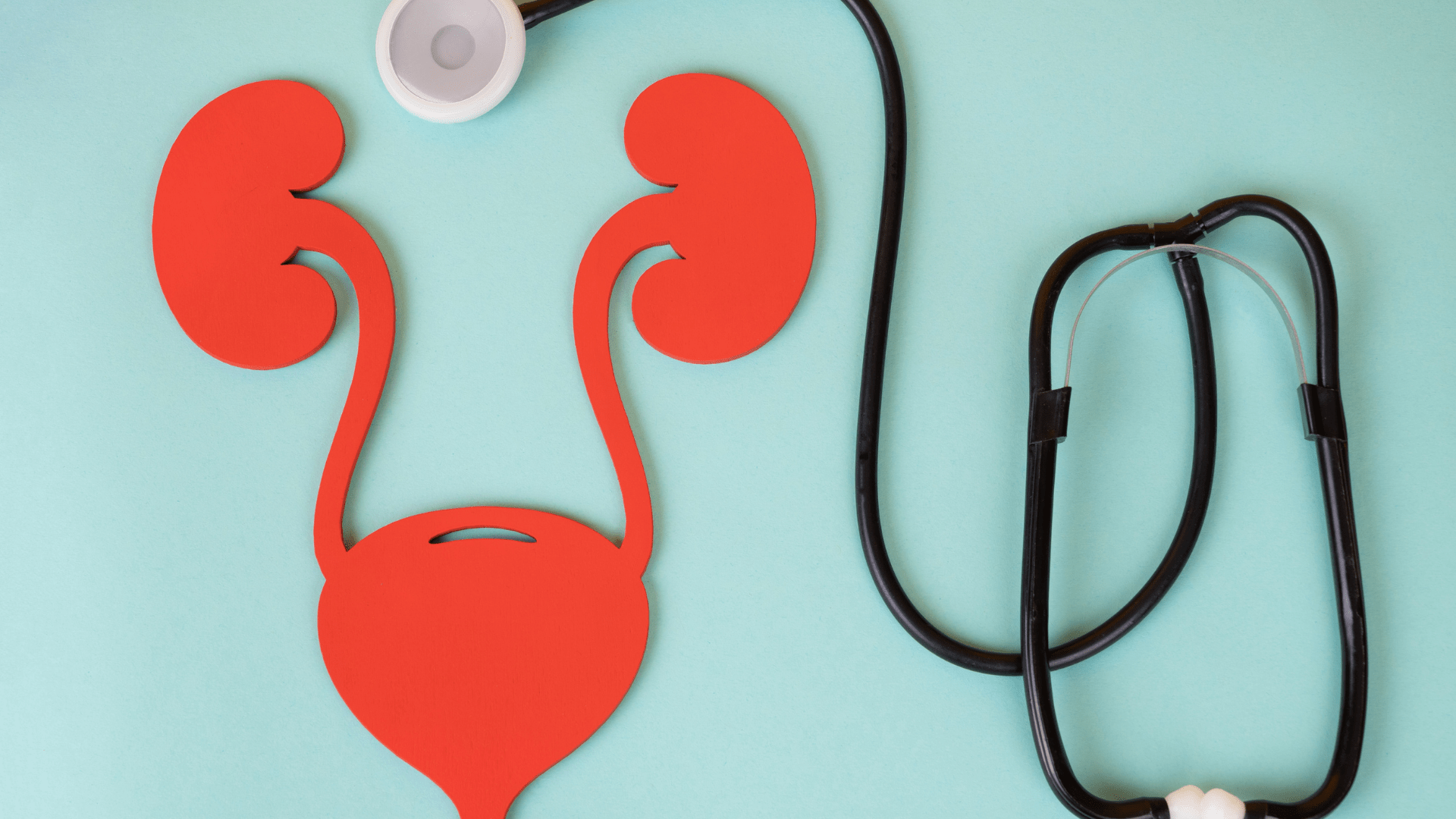Bringing a new life into the world is a cherished dream for many individuals and couples. However, amidst the joy and excitement, there is an often overlooked factor that can significantly impact one’s chances of conception—stress. While stress is an unavoidable part of modern life, its detrimental effects on reproductive health cannot be ignored. This article explores the relationship between stress and fertility, shedding light on how chronic stress can significantly hurt your chances of conceiving and having a baby.
Stress and Its Far-Reaching Effects
Stress is the body’s natural response to demanding situations, triggering a cascade of hormonal and physiological changes. When stress becomes chronic or prolonged, it can disrupt the delicate balance of reproductive hormones, affecting both male and female fertility. Let us delve deeper into the specific ways stress can impede your chances of conceiving.
Impact on Female Fertility

- Irregular Menstrual Cycles: Stress can disrupt the delicate hormonal balance necessary for regular menstrual cycles. Irregular or absent periods can make it difficult to predict ovulation and time intercourse effectively.
- Hormonal Imbalance: Stress can affect the production and regulation of reproductive hormones, such as follicle-stimulating hormone (FSH) and luteinizing hormone (LH), which are crucial for ovulation and successful conception.
- Disrupted Ovulation: High stress levels can lead to anovulation (lack of ovulation) or delayed ovulation, reducing the window of opportunity for fertilization.
- Reduced Egg Quality: Stress can negatively impact egg quality by affecting the maturation process. Poor egg quality is associated with lower fertility rates and an increased risk of miscarriage.
Impact on Male Fertility
- Impaired Sperm Production: Stress can affect the production of sperm, leading to reduced sperm count and motility, as well as abnormalities in sperm shape and function.
- Erectile Dysfunction: Chronic stress can contribute to erectile dysfunction and decreased sexual desire, making it challenging for couples to conceive.
- Hormonal Imbalances: Stress disrupts hormonal regulation in men, leading to imbalances in testosterone and other reproductive hormones.
Additionally, for couples undergoing assisted reproductive technologies such as in vitro fertilization (IVF), stress can affect the outcome. Studies have shown that high levels of stress can reduce the success rates of IVF treatments. Stress management techniques can be particularly helpful for individuals undergoing ART procedures.

Managing stress for enhanced fertility
Recognizing the impact of stress on fertility is the first step towards mitigating its adverse effects. Here are some strategies to help manage stress and improve your chances of conception:
- Prioritize Self-Care: Engage in activities that promote relaxation and well-being. Practice mindfulness, yoga, meditation, or engage in hobbies that bring joy and reduce stress levels.
- Seek Support: Communicate openly with your partner, friends, or family about your feelings and concerns. Consider joining support groups or seeking professional counseling to navigate the emotional challenges of infertility.
- Maintain a Healthy Lifestyle: Eat a balanced diet, exercise regularly, and prioritize adequate sleep. These lifestyle factors contribute to overall well-being and can positively impact fertility.
- Manage Work-Life Balance: Create boundaries between work and personal life, ensuring time for relaxation and quality time with your partner. Consider engaging in stress-reducing activities outside of work.
- Explore Stress-Reduction Techniques: Practice deep breathing exercises, progressive muscle relaxation, or other stress management techniques to help regulate your body’s stress response.
Conclusion
The impact of stress on fertility is undeniable, and recognizing its potential harm is crucial for couples trying to conceive. While stress is a part of life, managing it effectively through relaxation techniques, exercise, counseling, and support from loved ones can play a vital role in maintaining reproductive health. If stress levels persist or become overwhelming, seeking professional help from fertility specialists or mental health experts can provide guidance and support during this challenging time. Remember, prioritizing self-care and reducing stress can positively influence your chances of starting a family.
It’s important to note that individual experiences may vary, and factors other than stress can contribute to fertility issues. For personalized advice and direction, it is always advised to consult a healthcare professional.
References
- Buck Louis GM, et al. Stress reduces conception probabilities across the fertile window: evidence in support of relaxation. Fertil Steril. 2011;95(7):2184-2189.
- Schliep KC, et al. Stress biomarkers and pregnancy on-time probabilities among women with or without a history of pregnancy loss. PLoS One. 2017;12(8):e0182823.
- Gollenberg AL, et al. Perceived stress and fecundability: a preconception cohort study of North American couples. Am J Epidemiol. 2010;171(3):290-298.
- Pook M, et al. Stress and sexual function: a systematic review on the effects of acute and chronic stress on erectile function. J Sex Med. 2018;15(4):437-456.
- Hammoud AO, et al. Stress and delay to sexual intercourse. J Sex Med. 2013;10(1):222-231.
FAQs
- Q: Can stress really affect fertility?
A: Yes, chronic stress can have a negative impact on fertility. Increased stress hormone levels, such as cortisol, can affect hormone balance, menstrual cycle. and ovulation in women, and affect sperm quality and quantity in men. - Q: How does stress affect the menstrual cycle?
A: Stress can cause irregular or absent periods, making it difficult to predict ovulation. High levels of stress can lead to anovulation (lack of ovulation) and may affect the quality and maturation of eggs, reducing the chances of successful fertilization. - Q: Can stress affect sperm quality?
A: Yes, chronic stress can lead to decreased sperm count, reduced sperm motility (movement), and altered sperm morphology (shape). Stress-related factors, such as oxidative damage and hormonal imbalances, can contribute to these effects, making it more challenging to achieve pregnancy. - Q: Does stress impact sexual function and libido?
A: Yes, stress can negatively impact sexual function and desire in both men and women. Elevated stress levels can reduce libido and contribute to sexual dysfunction, which may affect the frequency of sexual intercourse and decrease the chances of conception. - Q: How can I manage stress to improve my chances of conception?
A: Managing stress is crucial for maintaining reproductive health. Some effective stress management techniques include practicing relaxation exercises (such as deep breathing and meditation), engaging in regular physical activity, seeking support from loved ones, considering counseling or therapy, and adopting healthy lifestyle habits. - Q: Can reducing stress alone guarantee successful conception?
A: While stress reduction can positively impact fertility, it’s important to remember that fertility is a complex process influenced by multiple factors. Stress is just one piece of the puzzle. Other factors, such as age, underlying medical conditions, and overall reproductive health, should also be considered. Consulting a healthcare professional is essential for personalized advice and guidance. - Q: Are there any specific fertility treatments or interventions for stress-related infertility?
A: Fertility specialists may recommend various treatments or interventions based on individual circumstances. These can include stress reduction techniques, counseling or therapy, assisted reproductive technologies (such as in vitro fertilization – IVF), or other medical interventions tailored to address specific fertility issues. - Q: How long does it take for stress reduction efforts to positively impact fertility?
A: The timeline for experiencing positive effects from stress reduction efforts can vary depending on the individual. It’s important to be patient and consistent with stress management techniques. It may take some time to see improvements in reproductive health, and individual results may vary. - Q: Are there any resources available for couples dealing with stress-related infertility?
A: Yes, there are resources available for couples dealing with stress-related infertility. Fertility clinics often provide counseling services and support groups. Additionally, there are online forums, books, and websites that offer information, guidance, and emotional support for individuals and couples on their fertility journey.





